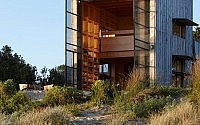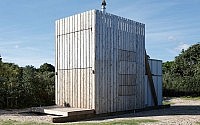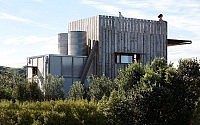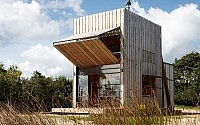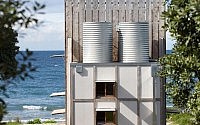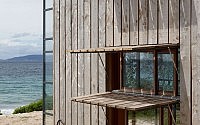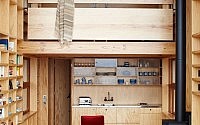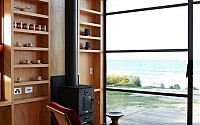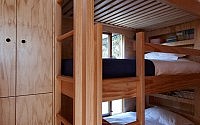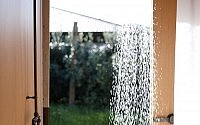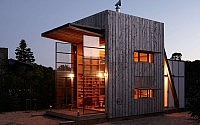Beach Hut by Crosson Clarke Carnachan Architects
Designed by Crosson Clarke Carnachan Architects, this elegant hut is situated on the shore of an idyllic white sandy beach on New Zealand’s Coromandel Peninsula.


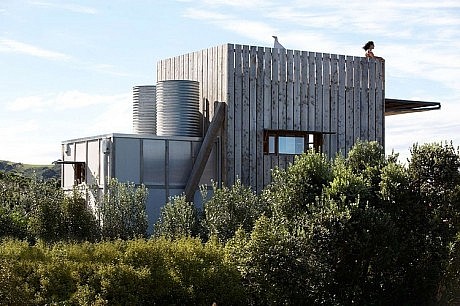
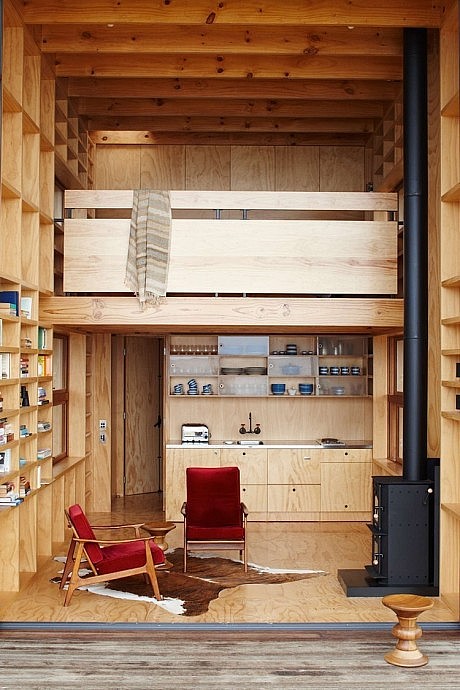
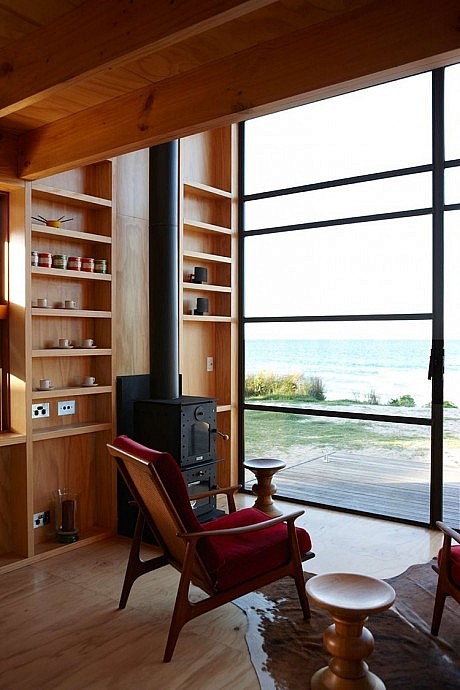
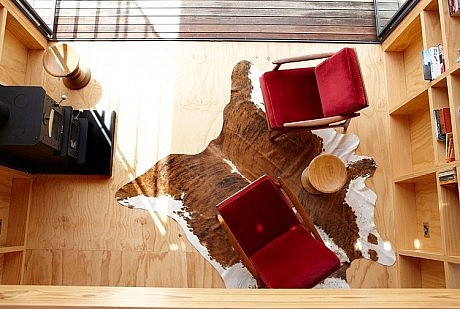
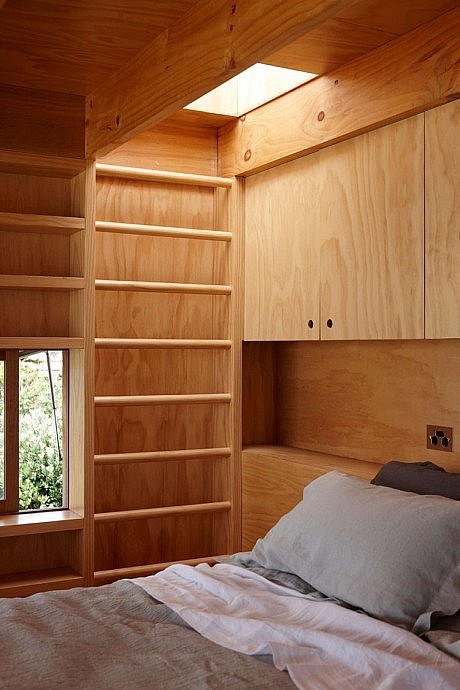
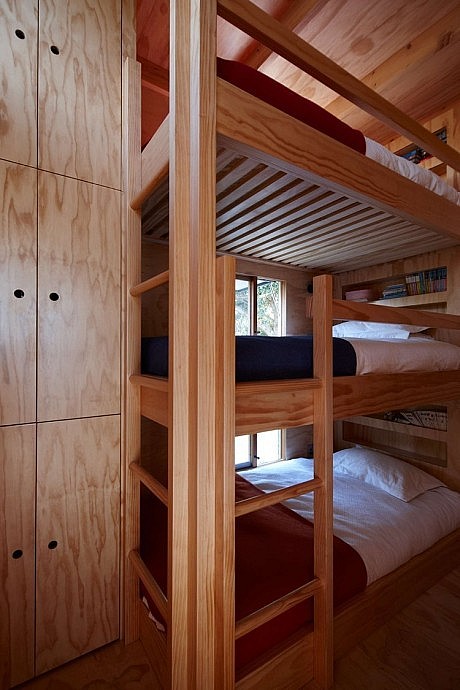
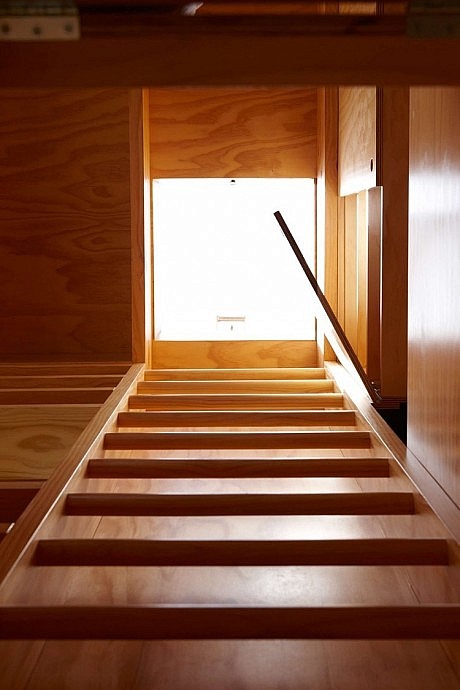
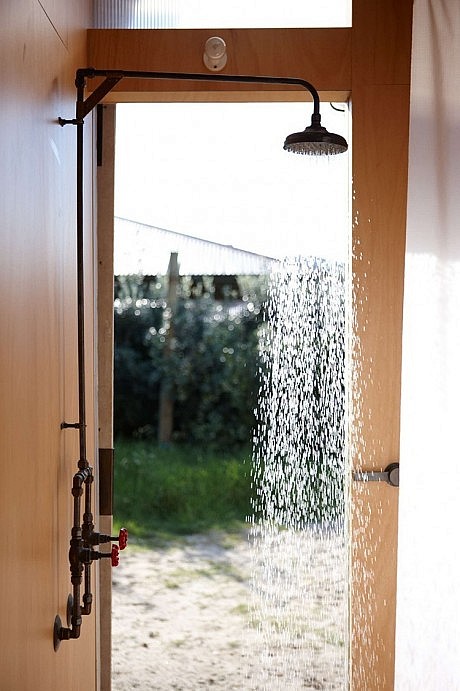
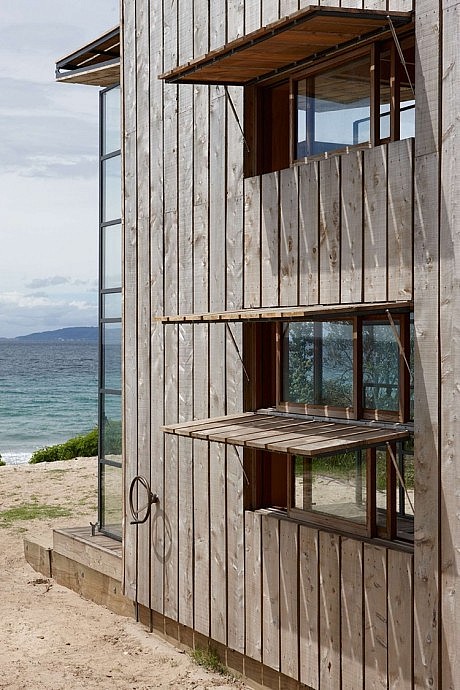
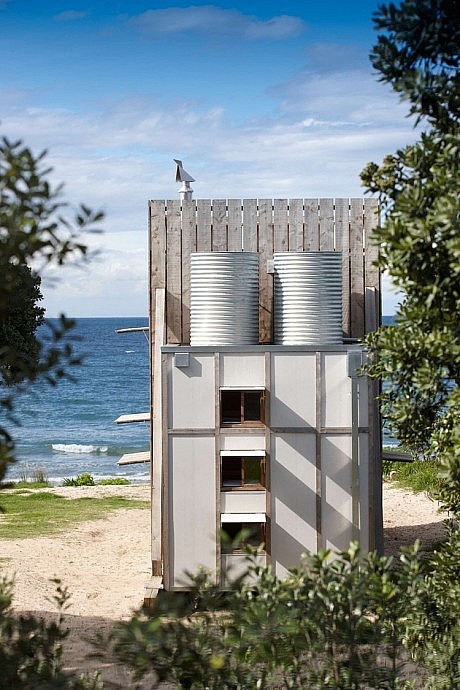
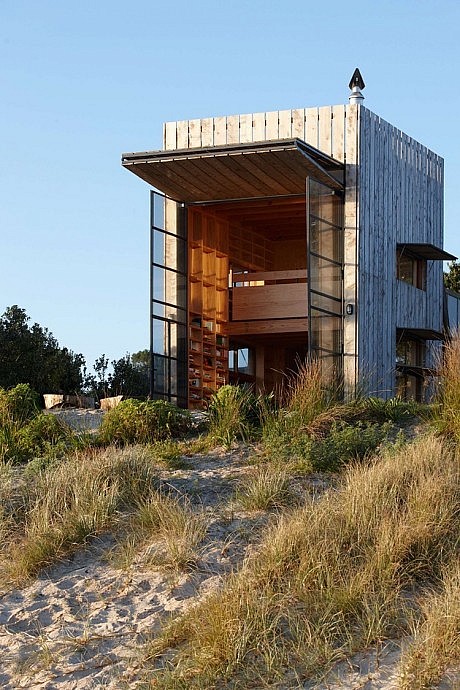
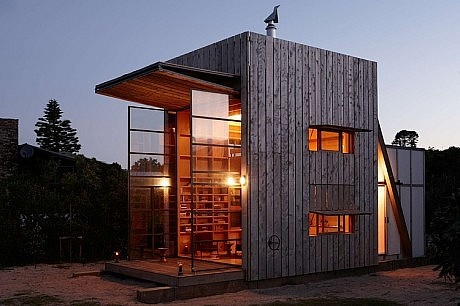
Description by Crosson Clarke Carnachan Architects
The site lies within the coastal erosion zone, where all building must be removable. This is taken literally and the hut is designed on two thick wooden sleds for movement back up the site or across the beach and onto a barge.
The hut is a series of simple design moves. The aesthetic is natural and reminiscent of a beach artifact/perhaps a surf-life-saving or observation tower. The fittings and mechanics are industrial and obvious, the structure is gutsy and exposed.
The holiday retreat is designed to close up against the elements when not in use, and measures a mere 40 square meters. It accommodates a family of five in a kitchen/dining/living area, a bathroom and two sleeping zones, the children’s accommodating a three tiered bunk. Closed up, the rough macrocarpa cladding blends into the landscape and perches unobtrusively on the dunes. The rear being clad in “flat sheet” a cheap building material found in many traditional New Zealand holiday homes.
These clients sought to explore the real essence of holiday living; small, simple, functional. The normal rituals of daily life; cooking dining, sleeping and showering all being done connected to the outside. The two storey shutter on the front facade winches open to form an awning, shading the interior from summer sun while allowing winter sun to enter. It reveals a double height steel framed glass doors that open the interior much like the tent flap, connecting the living and the ladder accessed mezzanine bedroom to the extraordinary view.
Within, the interior is the epitome of efficiency, every available space is utilised from cabinetry toe spaces to secret cubby holes within the children’s bunks.
The hut is totally sustainable from its modest size to the use of timber in its cladding, structure, lining and joinery and from its worm tank waste system to the separate potable grey water tanks. This is a new way of looking at holiday living in this sensitive dune environment.
Photography by Jackie Meiring
Visit Crosson Clarke Carnachan Architects
- by Matt Watts